Simply since you’re consuming a vegetarian or vegan food regimen doesn’t imply you’re consuming healthfully.
“Plant-Primarily based Diets Are Associated with a Decrease Danger of Incident Cardiovascular Illness, Cardiovascular Illness Mortality, and All-Trigger Mortality in a Normal Inhabitants of Center-Aged Adults”: This research of a various pattern of 12,000 Individuals discovered that “progressively rising the consumption of plant meals by decreasing the consumption of animal meals is related to benefits on cardiovascular well being and mortality.” Nonetheless, concerning plant-based diets for heart problems prevention, “all plant meals usually are not created equal.” As you possibly can see within the graph beneath and at 0:40 in my video Vegetarians and Stroke Risk Factors: Vegan Junk Food?, a British research found greater stroke danger in vegetarians. Have been they simply consuming a variety of vegan junk meals?
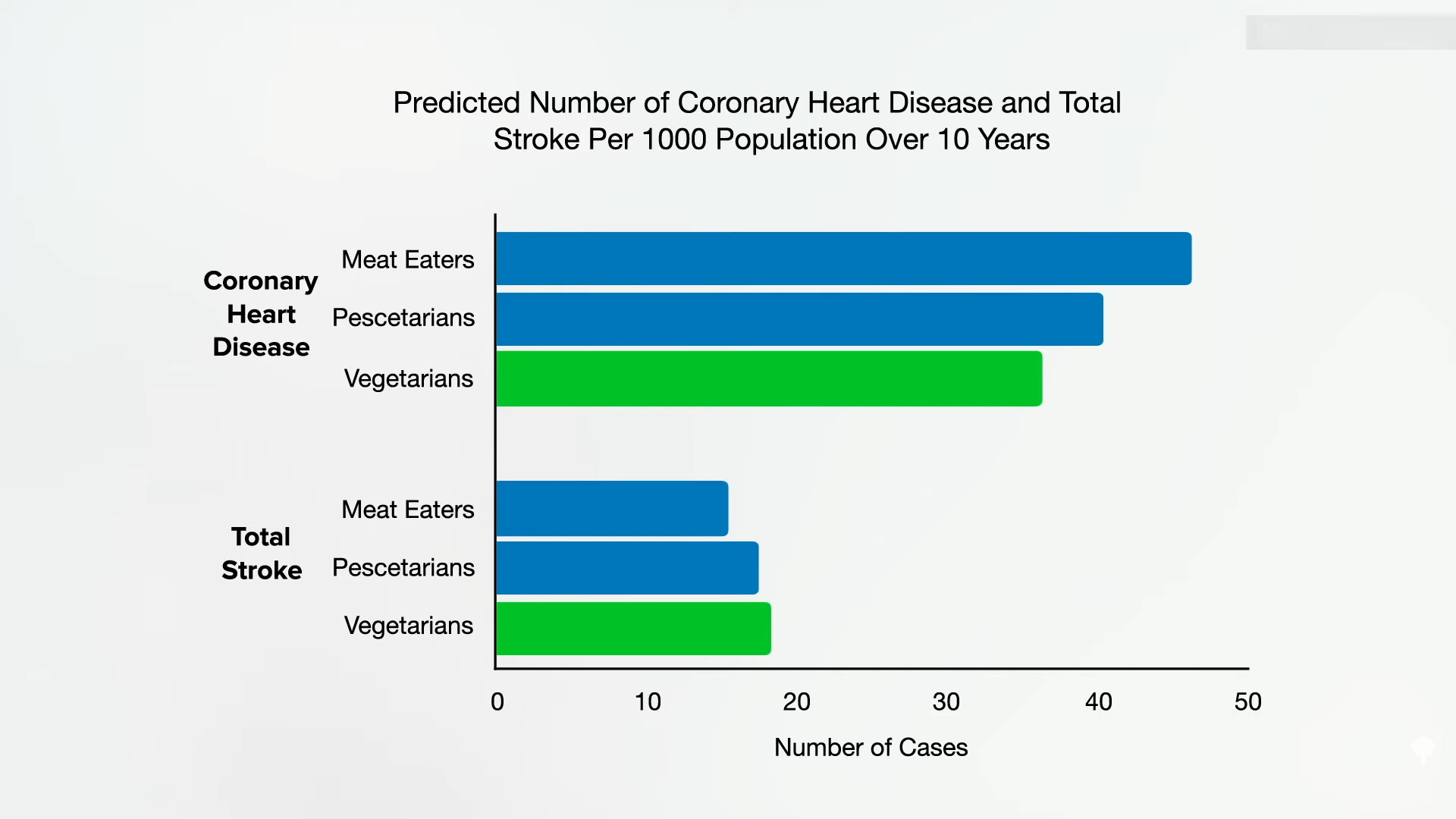
“Any food regimen devoid of animal meals sources may be claimed to be a vegetarian [or vegan] food regimen; thus, you will need to decide” what is being eaten. One of many first issues I have a look at after I’m attempting to see how severe a inhabitants is about wholesome consuming is one thing that’s undeniably, uncontroversially unhealthy: soda, aka liquid sweet. Anybody ingesting straight sugar water doesn’t have well being on prime of thoughts.
A big research was carried out of plant-based eaters in the USA, the place folks are inclined to cut down on meat for well being causes way over for ethics, as you possibly can see within the graph beneath and at 1:20 in my video.
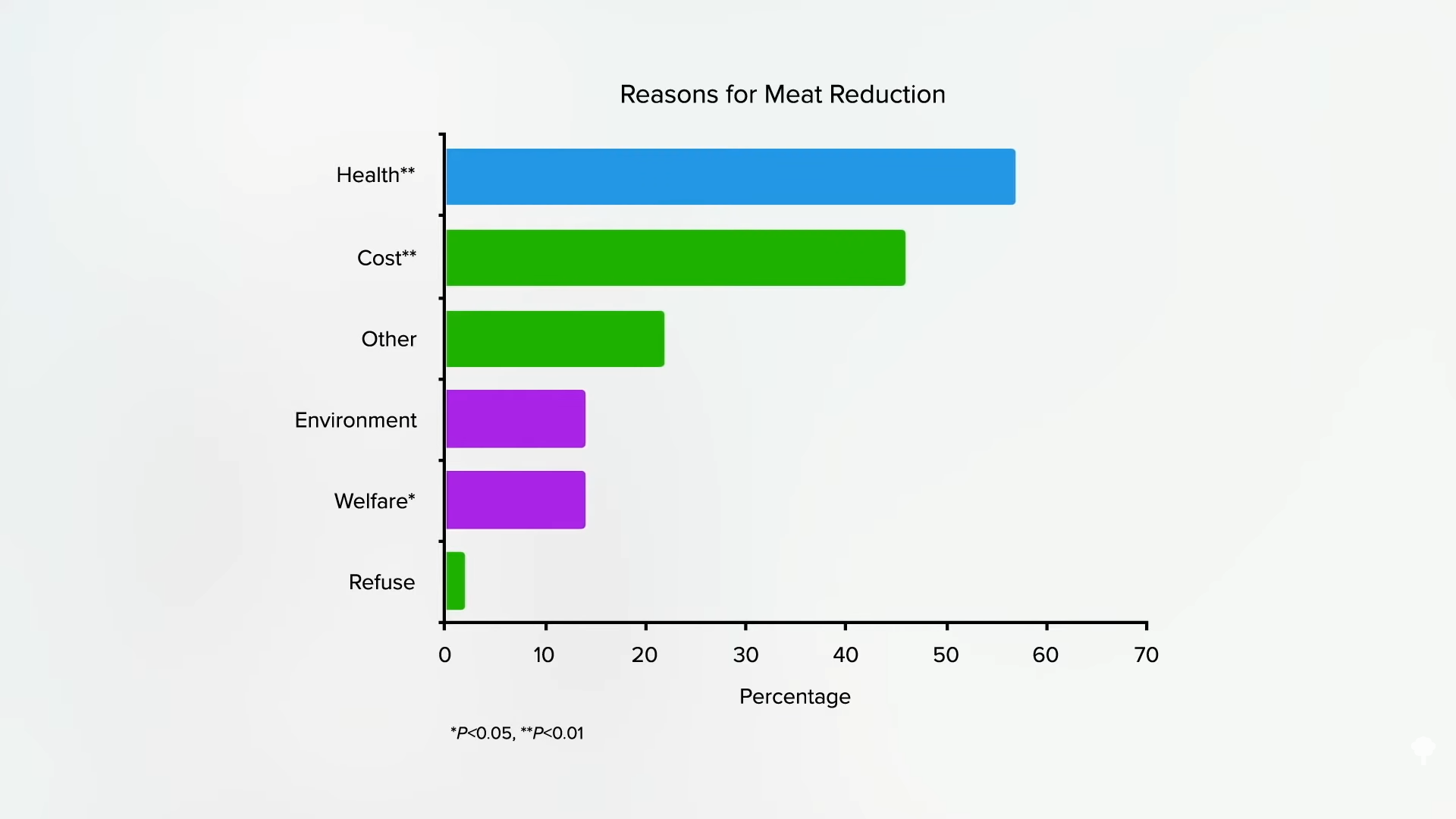
Researchers found that flexitarians drink fewer sugary drinks than common meat eaters, as do pescatarians, vegetarians, and vegans, as you possibly can see beneath and at 1:30.
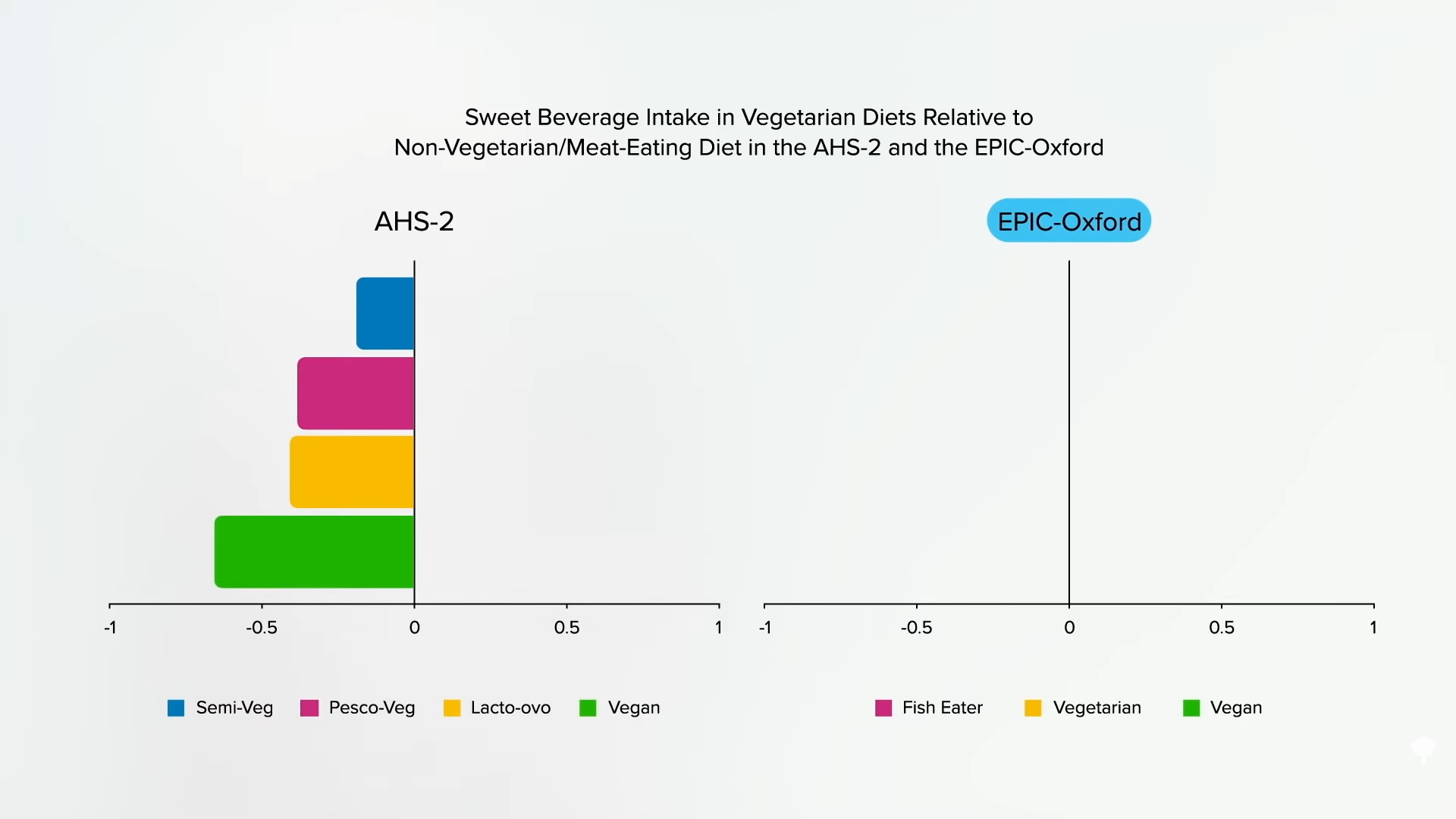
Nevertheless, within the research from the UK the place the elevated stroke danger in vegetarians was found and the place individuals are extra prone to go veg or vegan for moral causes, researchers found that pescatarians drink much less soda, however the vegetarians and vegans drink extra, as shown within the graph beneath and at 1:44.
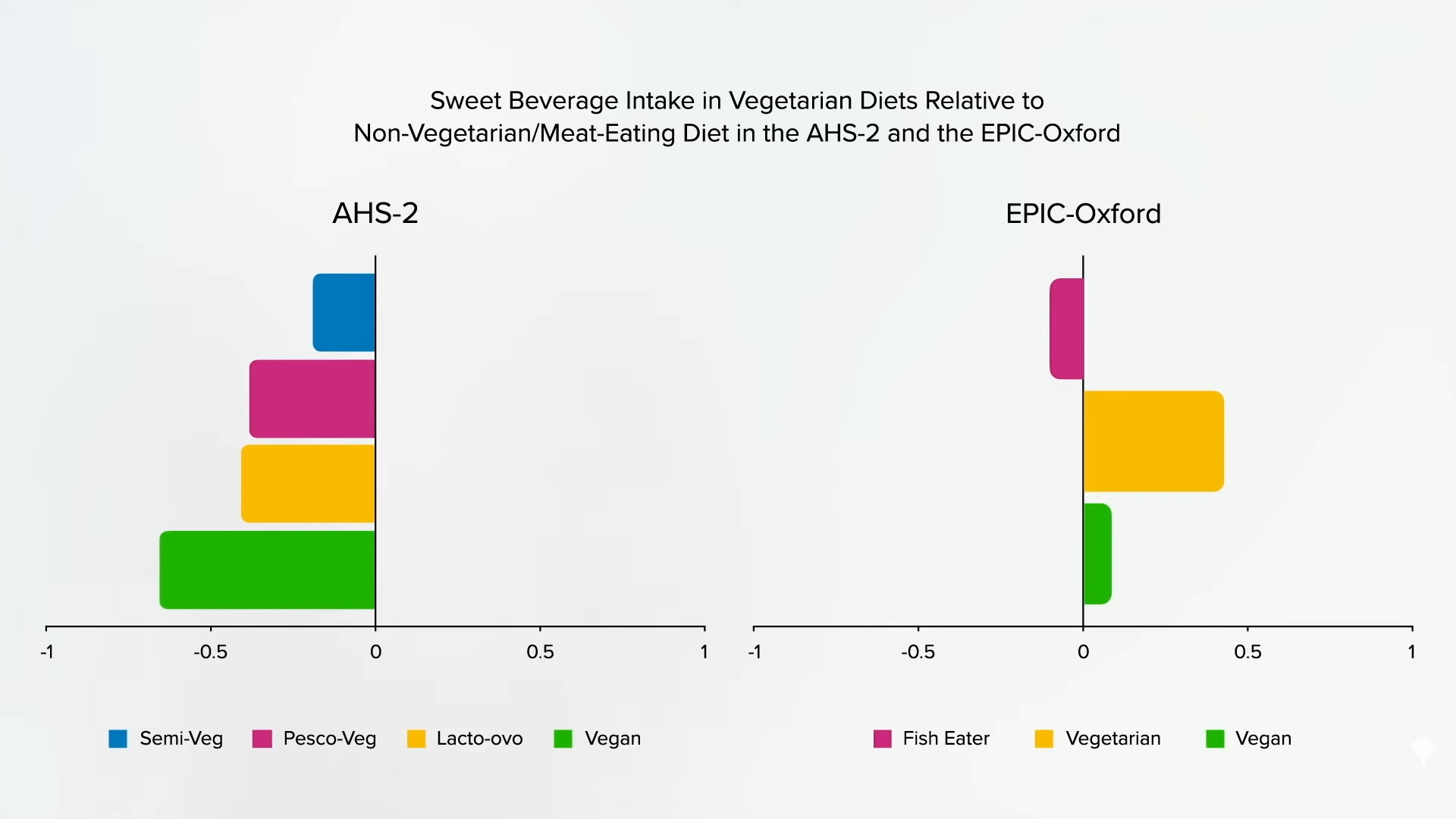
I’m not saying that’s why that they had extra strokes; it’d simply give us an thought of how healthfully they had been consuming. Within the UK research, the vegetarian and vegan women and men ate about the identical quantities of desserts, cookies, and chocolate, as you possibly can see within the graph beneath and at 1:53.
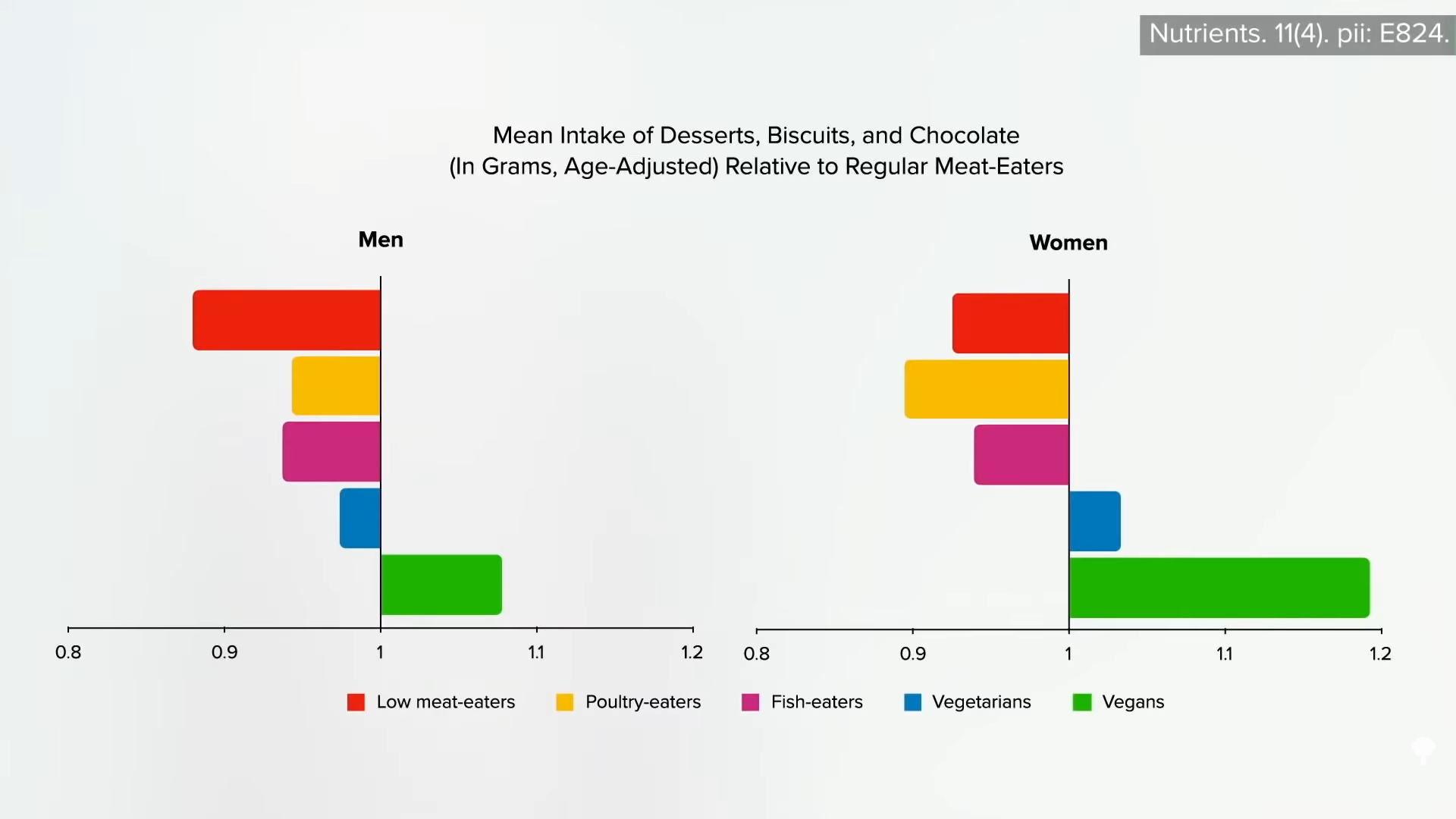
Additionally they consumed about the identical complete sugar, as shown beneath and at 2:02.
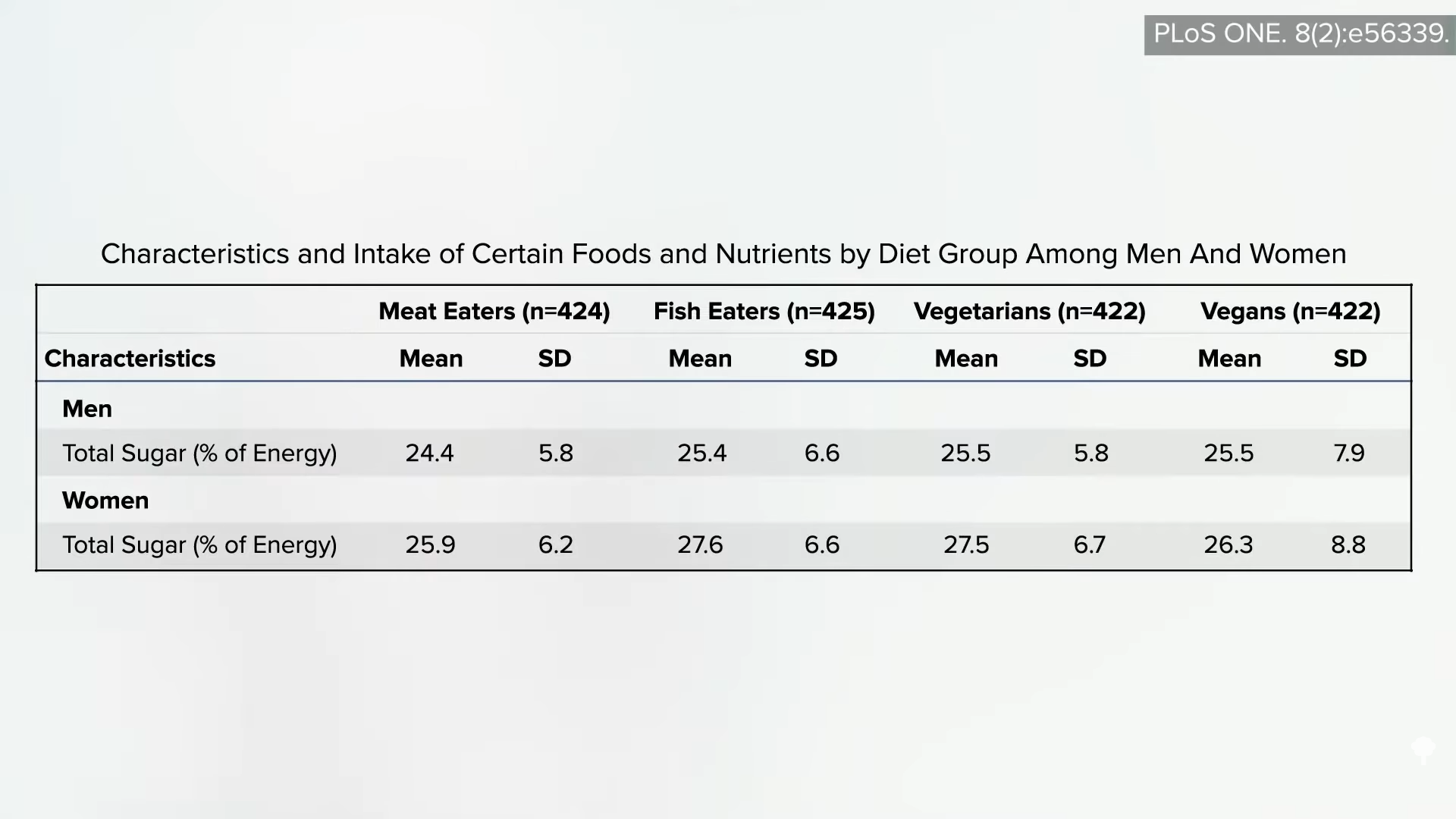
Within the U.S. research, the typical non-vegetarian is practically overweight, the vegetarians are slightly chubby, and the vegans had been the one preferrred weight group. On this evaluation of the UK research, nonetheless, everybody was about the identical weight. The meat eaters had been lighter than the vegans, as you possibly can see beneath, and at 2:19 in my video. The EPIC-Oxford research appears to have attracted a very “health-conscious” group of meat eaters weighing considerably lower than the final inhabitants.
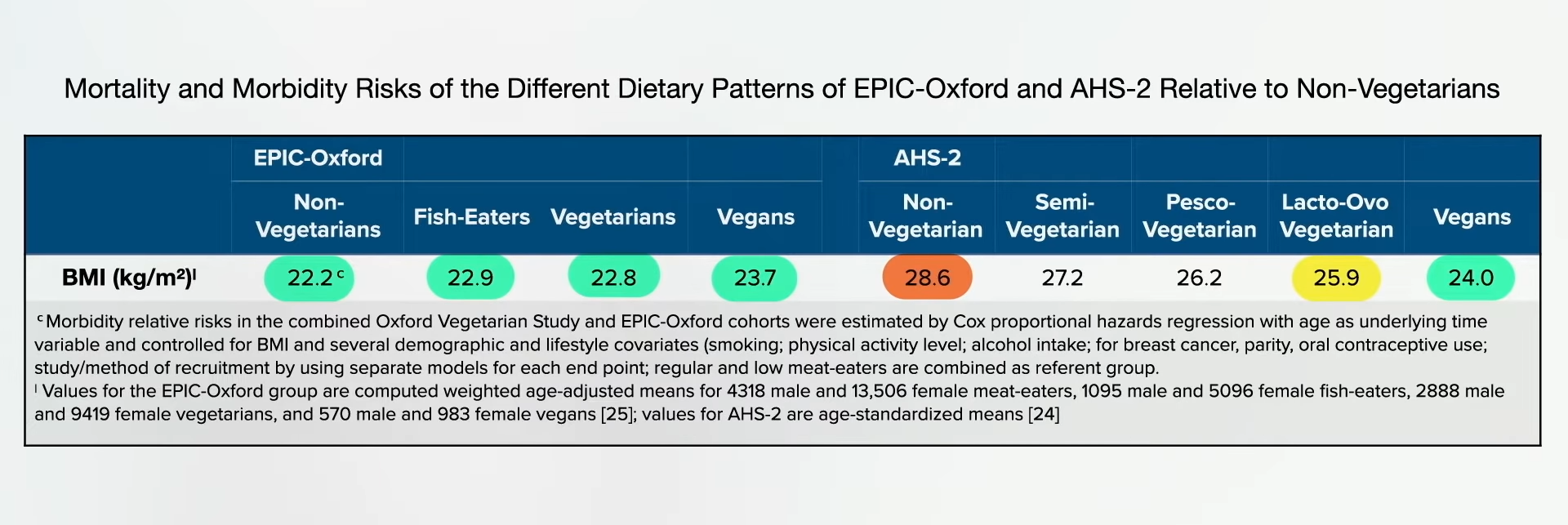
Let’s have a look at some particular stroke-related vitamins. Dietary fiber appears to be useful for the prevention of heart problems, together with stroke, and it seems the extra, the higher, as you possibly can see within the graph beneath and at 2:43 in my video.
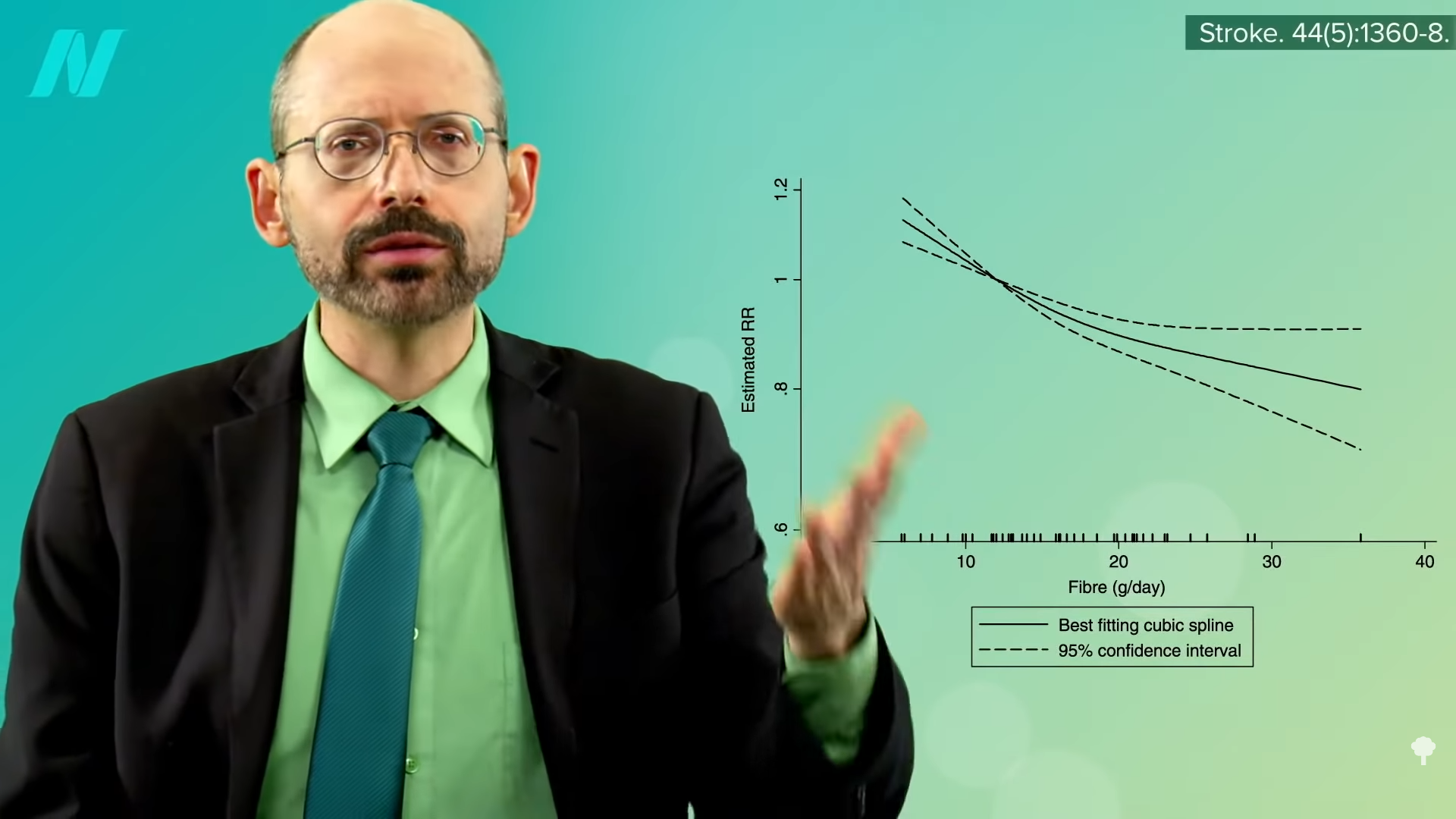
Primarily based on research of practically half one million women and men, there doesn’t seem to be any higher threshold of profit—so, once more, “the extra, the higher.” At greater than 25 grams of soluble fiber and 47 grams of insoluble dietary fiber, you can begin seeing a major drop in related stroke danger. So, one might think about these values “because the minimal recommendable every day consumption of soluble and insoluble fiber…to stop stroke at a inhabitants stage.” That’s what you see in folks eating diets centered round minimally processed plant meals. Dean Ornish, M.D., acquired up round there together with his entire meals, plant-based food regimen. It may not be as a lot as we had been designed to eat, primarily based on the analyses of fossilized feces, however that’s about the place we would count on considerably decrease stroke danger, as proven beneath and at 3:25 in my video.
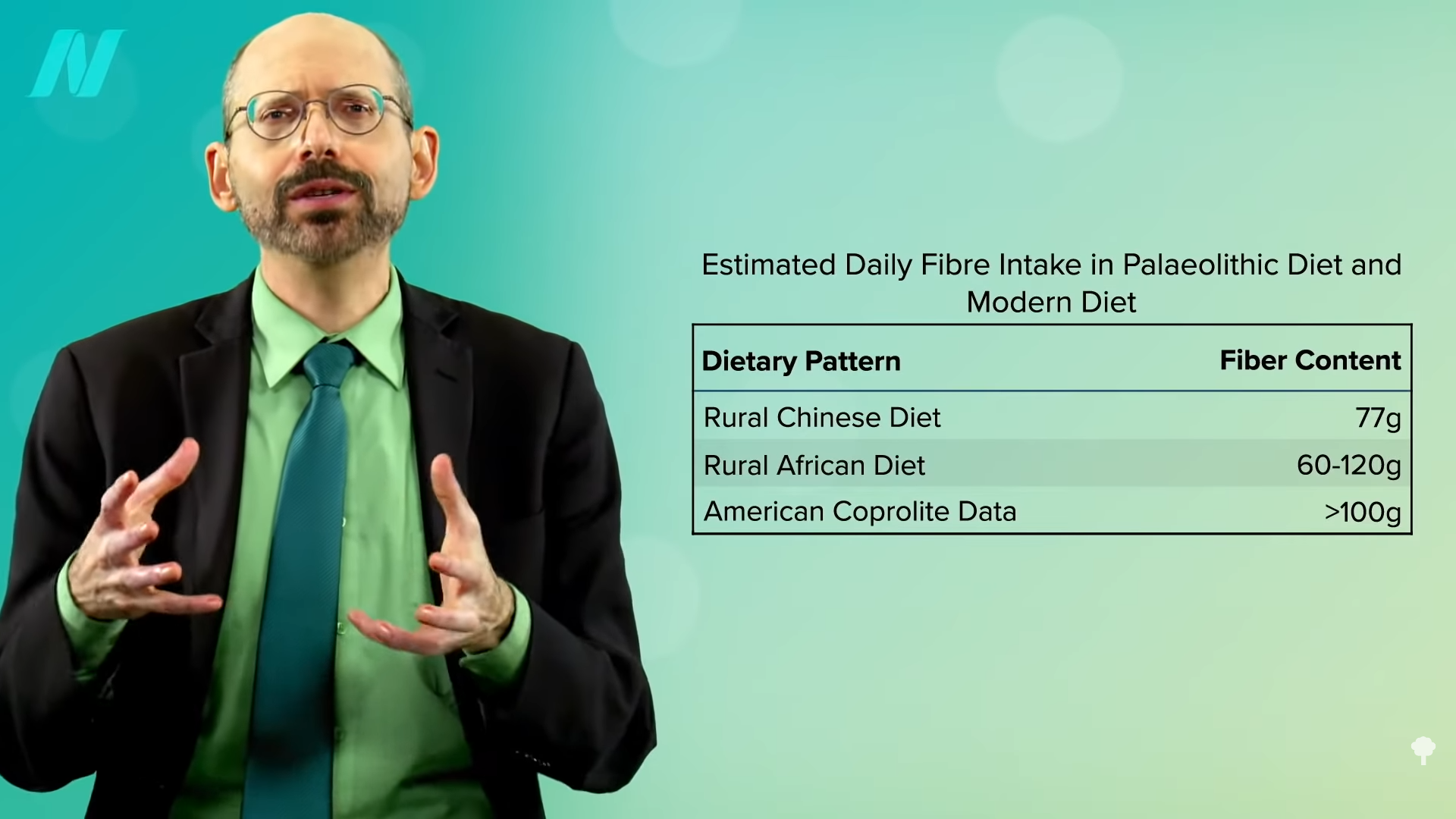
How a lot had been the UK vegetarians getting? 22.1 grams. Now, within the UK, they measure fiber slightly in another way, so it might be nearer to 30 grams, however that’s nonetheless not the optimum stage for stroke prevention. It’s so little fiber that the vegetarians and vegans solely beat out the meat eaters by about one or two bowel actions per week, as you possibly can see beneath and at 3:48 in my video, suggesting the non-meat eaters had been eating a number of processed meals.
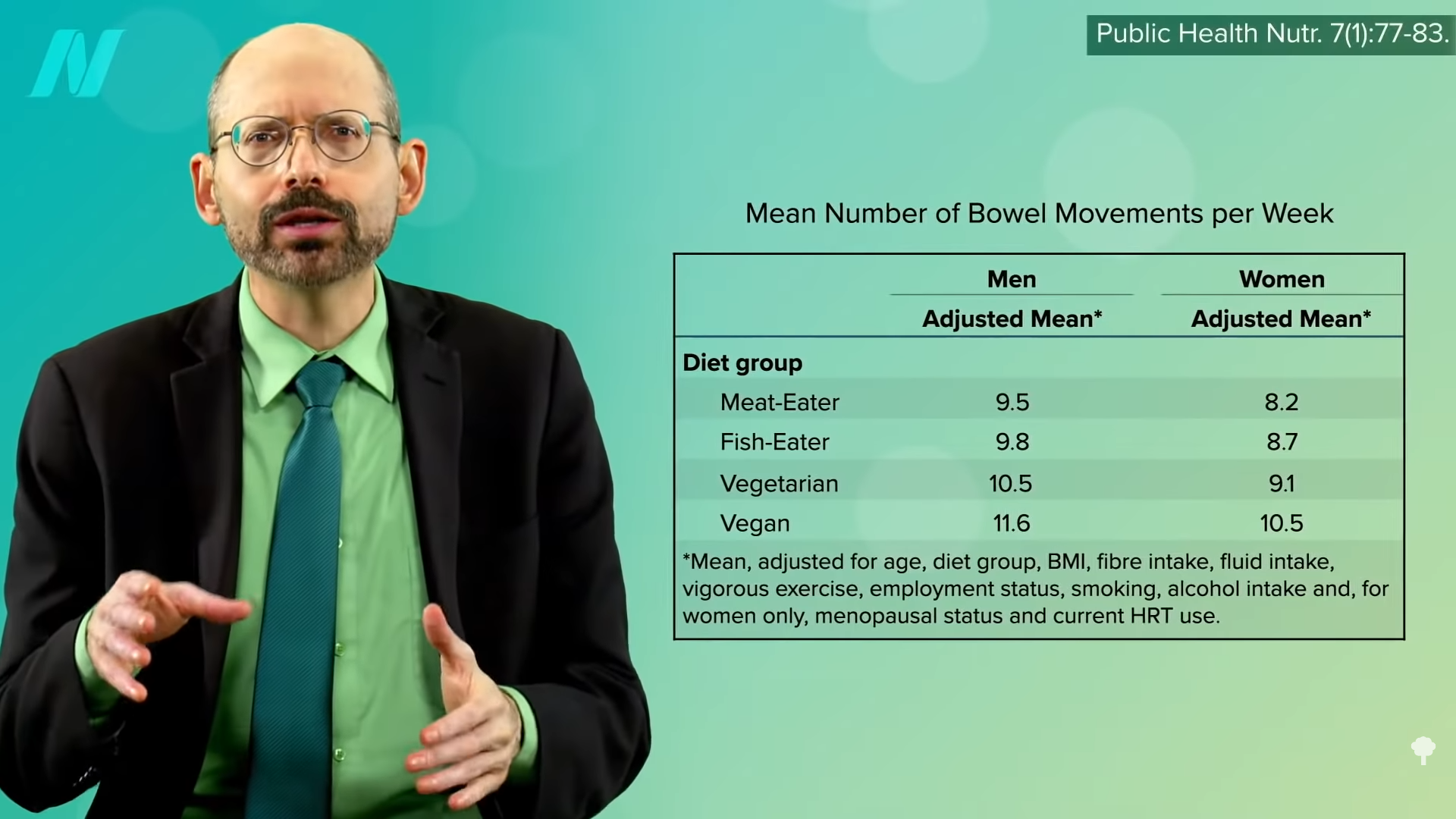
The vegetarians had been solely eating about half a serving extra of vegetables and fruit. Consumption is assumed to reduce stroke danger partially due to their potassium content material, however the UK vegetarians at greater stroke danger had been eating so few greens and beans that they couldn’t even match the meat eaters. The vegetarians (and the meat eaters) weren’t even reaching the really useful minimal every day potassium consumption of 4,700 mg a day.
What about sodium? “The overwhelming majority of the out there proof indicates that elevated salt consumption is related to greater stroke danger…” There is virtually a straight-line enhance within the danger of dying from a stroke, the extra salt you eat, as you possibly can see within the graph beneath and at 4:29 in my video.
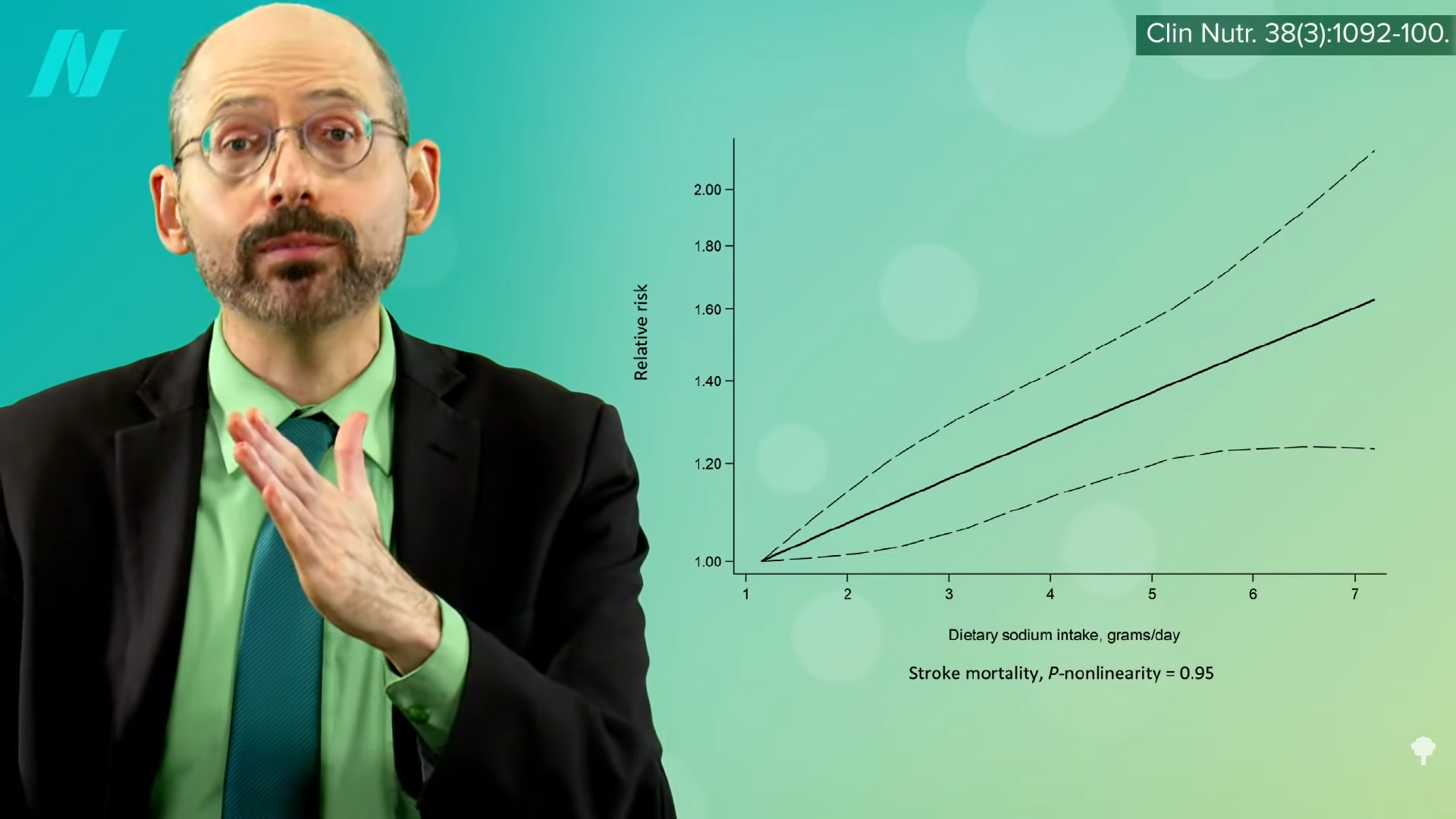
Even simply lowering sodium consumption by a tiny fraction yearly might stop tens of 1000’s of deadly strokes. “Decreasing Sodium Consumption to Forestall Stroke: Time for Motion, Not Hesitation” was the title of the paper, however the UK vegetarians and vegans seemed to be hesitating, as did the opposite dietary teams. “All teams exceeded the suggested lower than 2400 mg every day sodium consumption”—and that didn’t even account for salt added to the desk! The American Coronary heart Affiliation recommends lower than 1,500 mg a day. So, they had been all consuming a variety of processed meals. It’s no marvel the vegetarians’ blood pressures were just one or two factors decrease. Hypertension is maybe “the one most essential probably modifiable danger issue for stroke.”
What proof do I’ve that the vegetarians’ and vegans’ stroke danger would go down in the event that they ate extra healthfully? Effectively, in rural Africa, the place they had been capable of nail the fiber consumption that our our bodies had been designed to get by consuming so many entire, wholesome plant meals—including fruits, greens, grains, greens, beans, and protein nearly totally from plant sources—not solely was coronary heart illness, our primary killer, “nearly non-existent,” however so was stroke. It solely surged up from nowhere “with the introduction of salt and refined meals” to their food regimen.
“It’s notable that stroke and senile dementia appear to be just about absent in Kitava, an Oceanic tradition [near Australia] whose quasi-vegan conventional food regimen may be very low in salt and really wealthy in potassium.” They ate fish a number of occasions per week, however the different 95 % or so of their food regimen was made up of greens, fruits, corn, and beans. That they had an obvious absence of stroke, even regardless of their ridiculously excessive charges of smoking, 76 % of males and 80 % of ladies. We evolved by consuming as little as lower than an eighth of a teaspoon of salt a day, and our every day potassium consumption is assumed to have been as excessive as 10,000 mg or so. We went from an unsalted, whole-food food regimen to consuming salty, processed meals depleted of potassium whether or not we eat meat or not.
Caldwell Esselstyn on the Cleveland Clinic tried putting about 200 sufferers with established heart problems on an entire meals, plant-based food regimen. Of the 177 who caught with the food regimen, solely a single affected person went on to have a stroke within the subsequent few years, in comparison with a hundred-fold larger price of hostile occasions, together with a number of strokes and deaths in those that strayed from the food regimen. “This isn’t vegetarianism,” Esselstyn explains. Vegetarians can eat a variety of less-than-ideal meals, “similar to milk, cream, butter, cheese, ice cream, and eggs. This new paradigm is completely plant-based diet.”
This whole practice of thought—that the explanation typical vegetarians don’t have higher stroke statistics is as a result of they’re not consuming significantly stellar diets—might clarify why they don’t have considerably decrease stroke charges. Nevertheless, it nonetheless doesn’t clarify why they could have greater stroke charges. Even when they’re consuming equally crappy, salty, processed diets, no less than they aren’t consuming meat, which we all know will increase stroke danger. There should be one thing about vegetarian diets that so will increase stroke danger that it offsets their inherent benefits. We’ll proceed our hunt for the reply subsequent.
From a medical standpoint, labels like vegan and vegetarian simply inform me what you don’t eat. It’s like figuring out your self as a “No-Twinkie-tarian.” You don’t eat Twinkies? Nice, however what’s the remainder of your food regimen like?
What are the healthiest meals? Take a look at my Daily Dozen.
To atone for the remainder of this sequence, see associated posts beneath.











